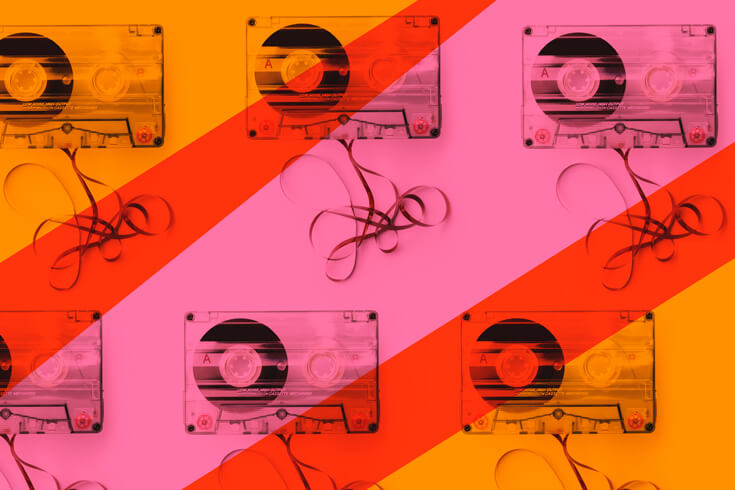Last year, a TA in the lyric-writing class I teach, at the University of British Columbia, came to me with a problem. She was marking assignments for which our students had been asked to compose a song in a genre of their choosing, and she thought that one of the submissions, from a budding rapper, was misogynistic. I listened to the demo, which contained numerous references to women as “bitches” and “hoes” and described them performing sexual acts. I decided to set up a meeting with the student.
During our one-on-one, I remember the student arguing that his lyrics weren’t any different from those written by artists he was currently listening to, artists who had male and female listeners. He began listing off names, including a nineteen-year-old artist named YBN Nahmir from Birmingham, Alabama. In one of YBN Nahmir’s songs, “Bounce Out with That,” the rapper sings: “Fuck a bitch and then I put it in a bitch throat / Never give a bitch yo’ phone, that’s a no-no.” YBN Nahmir has no shortage of similar lyrics and no shortage of fans, either—nearly four million monthly listeners on Spotify and hundreds of millions of views on YouTube. “Bounce Out with That” even had a number-one spot on the Billboard Bubbling Under Hot 100 Singles chart.
The student was correct: his work was in line with the artists he was listening to, artists who had successful careers. Still, as a mentor in a university environment, I knew what my response had to be as an educator—the student would have to re-submit a new piece. But as a fellow songwriter and recording artist myself, not to mention a music fan, the issue seemed more complicated. On the one hand, I feel that artists are free to explore and express how they wish. But do professional songwriters—men in particular—have a responsibility to create work that not only sounds good but is morally good as well?
The issue of sexism in song lyrics is one that has repeatedly surfaced in my lyric writing classes. In another recent scenario I can recall, a student gave a presentation about a song that has been rocking parties, nightclubs, and weddings since 1980, and one that I have enjoyed countless times: AC/DC’s “You Shook Me All Night Long.” The opening lines go like this: “She was a fast machine, she kept her motor clean / She was the best damn woman that I ever seen.” The student’s conclusion? Yet another example of a songwriter objectifying women’s bodies. I decided to ask a few female friends if they also found lyrics like these offensive. One said she wasn’t really bothered by them; another suggested that the fact that they have long been celebrated is indicative of how male-centric the music industry has always been. “I’m not in favour of censorship, though,” she added.
Like my friend, I think that censorship is a difficult, if not dangerous, road to go down—what offends one listener might not offend another. Getting complete consensus on whether a song lyric is sexist is tough, but even if consensus were to be reached, what would we do next?
In the collection Under My Thumb: Songs That Hate Women and the Women Who Love Them, writer Fiona Sturgess discusses her conflicted affection for AC/DC. “Their songs are populated by strippers, prostitutes and young men with apparently unvanquishable erections. They really are appalling,” she writes before adding, “Man, I love AC/DC.” Her love, she says, is partly about nostalgia—she’s been listening to the band since age twelve—but, she adds, it has more to do with the way their music fires her up: “It’s the fact that their songs are packed with precision and power, as catchy as the finest throwaway pop music.”
Sturgess clearly has mixed feelings about being a fist-pumping AC/DC fan, yet she’s unable, or perhaps unwilling, to abandon her affection for a group she describes as “hopelessly unsophisticated.” She even goes so far as to look for the positives in the band’s songwriting, at one point suggesting the women in these songs may have more power than some would think. Like in “You Shook Me All Night Long,” where the woman is “taking more than her share” and has the male character “fighting for air.” She also makes reference to the band members’ notably un–rock star personal lives—lead singer Brian Johnson’s interest in West End musicals; guitarist Angus Young’s teetotalling ways—which, in her eyes, render these lustful tales pure fantasy and therefore harmless.
Last summer, during a drive to a music festival deep in the interior of British Columbia, my friend rode shotgun and played DJ. One of his picks was Australian singer-songwriter Alex Cameron’s album Forced Witness, and at first I loved all the catchy melodies and the ‘80s production style. But I was also struck by how often I kept hearing the word “pussy.” As we drove, I wondered: “What exactly am I listening to here?” Later, “faggot” drifted out of the speakers and made me question whether the artist was both misogynistic and homophobic.
A second listen, however, revealed something different. My friend mentioned how the singer’s delivery style and deep, baritone vocals showed that Cameron might be playing a character, employing an almost cartoonish take on bravado. Further research proved these instincts were right: Cameron, who once donned a wrinkly old-man mask for an album cover, was indeed playing a character. As one journalist for Pitchfork put it: “There are ten songs on Forced Witness, and each of them is sung by a complete asshole.” In “Marlon Brando,” one such asshole tries to woo a woman with his swagger:
Girl, I guess I just want you to be with me.
I want you to say that my hair looks nice
And my face has a Beckham-like quality.
And I know that I blew it and I know it ain’t right
To be calling men faggots and to be starting fights
But I can’t stop, I’m a dam overflowing, I’m a river run wild.
Cameron isn’t the first songwriter to employ a macho alter ego in the name of social commentary. Eminem spoke as Slim Shady to spout off homophobic and misogynistic slurs, but the attempt at parody wasn’t embraced by everyone. (Eminem’s own mother certainly didn’t see it as such when she sued her son for slander based on how he’d portrayed her in interviews.) One could argue that having an alter ego is simply a convenient way to say whatever hateful thing you want without stopping to wonder if it stings those implicated by the slur. In his Exclaim! review of Forced Witness, Tim Forster writes: “Even if the excuse is that he’s ‘in character,’ Cameron could probably skip invoking a certain anti-gay f-word (it’s not really a good look on straight artists, even if it’s in service of critique).”
A songwriter might feel they’re safe behind the shield of a character, but the fact is that words have power. Toronto-based songwriter Hannah Georgas certainly knows this. She told me about the moment she finally tuned in to the lyrics of one of her favourite songs—the Notorious B.I.G.’s “Hypnotize”—while out for a run. “I literally stopped in my tracks,” she said. The lyrics in question: “Your daughter’s tied up in a Brooklyn basement / Face it, not guilty, that’s how I stay filthy / Richer than Richie.”
What concerns Georgas is the effect misogyny in song lyrics could be having on younger listeners. She cites Canadian artist The Weeknd as an example of a singer all over the radio whose lyrics might be setting a negative example. She references the song “The Hills,” which goes: “I’mma let you know and keep it simple / Tryna keep it up don’t seem so simple / I just fucked two bitches ’fore I saw you / And you gon’ have to do it at my tempo.” “I know that tons of people love his music,” Georgas says. “I just think it sends a bad message.”
Concern over young ears is not new. In 1985, Tipper Gore and a group of women known as the “Washington Wives” founded the Parents Music Resource Center (PMRC) to address concerns around children’s exposure to themes of drugs, violence, and sex in music. Artists, including Frank Zappa, Dee Snider of Twisted Sister, and even folk singer John Denver, pushed back during Senate committee hearings, arguing that censorship only fuelled curiosity and would have the opposite effect desired by the PMRC. Furthermore, they pointed out, lyrics could easily be misinterpreted and therefore demonized unfairly. In the end, the Recording Industry Association of America decided to put explicit-content warning labels on albums at labels’ discretion.
One of the first bands to receive one of those black-and-white stamps was Florida’s 2 Live Crew. Their 1989 album, As Nasty as They Wanna Be—featuring the chart-topping “Me So Horny”—was even deemed obscene by a US court in 1990. However, American historian and critic Henry Louis Gates Jr. defended 2 Live Crew’s lyrics as upholding certain literary traditions of Black culture, including a tradition called “playing the dozens,” in which two people trade insults using exaggeration and hyperbole. He described 2 Live Crew’s music as “carnivalesque” and called the group’s work parody.
Shad, a Canadian hip-hop artist and host of the series Hip Hop Evolution on Netflix, also brought up the subject of humour in lyrics. There’s a tradition of raunchiness in hip hop that needs to be considered, he told me. “A lot of the time, you have people from outside the culture looking at the lyrics from their cultural lens and not necessarily understanding how it’s heard by women in that culture,” he says. Shad argues that listeners must also consider where the lyrics are coming from—in the case of 2 Live Crew, Florida. The fact that the artists are in the South, he said, and the fact that they’re close to the Caribbean likely inform the lyrical content in a way that’s different from what might influence a rapper in New York. This might also explain the cover image for As Nasty as They Wanna Be, which featured four women on a beach in thong bikinis, straddling the band.
But not all women gave 2 Live Crew a pass. In her 1997 essay “Beyond Racism and Misogyny,” lawyer and civil-rights activist Kimberlé Crenshaw acknowledged the use of Black cultural traditions such as verbal boasting but still saw the lyrics as misogynistic. She asked the reader to consider the injustice of forcing women to continually endure misogyny in lyrics even if the intention is humour, hyperbole, or an attempt at social commentary. “Although it may be true that the Black community is more familiar with the cultural forms that have evolved into rap,” she wrote, “that familiarity should not end the discussion of whether the misogyny within rap is acceptable.”
Sex has been in bed with song lyrics for decades, if not centuries. After all, music acts as a vessel for human expression, and sex is an intrinsic part of that. In the 1920s, blues music filled with innuendo—known as “dirty blues”—brought the world songs like “Shave ’Em Dry” by Lucille Bogan and “Big Ten Inch” by Bull Moose Jackson, which was later covered by Aerosmith. But whether listeners are drawn to the music for its sexual content or other elements is hard to discern—people may also be pulled in by the beat, the production, or the overall sound. “Big Ten Inch,” for instance, showcases Jackson’s searing saxophone skills, and I suspect that a big part of the appeal of “You Shook Me All Night Long” is the guitar riffs that stitch the whole thing together.
Regardless, songs about sex won’t be going anywhere. One of most notable changes in recent years is that charged lyrics are no longer the domain of men. The riot grrrl movement of the 1990s, featuring bands like Bikini Kill and Sleater-Kinney, was born in Washington state at a time when women felt they needed to have their voices heard in the sea of male-centric musical groups. More recently, rising pop star Héloïse Letissier of the band Christine and the Queens spoke to the Guardian about her song “Damn (What Must a Woman Do),” describing it as “a song addressing pure horniness.” She adds that, on her album, “so many songs are about being as horny as a man.” In the song “Damn,” the chorus goes:
Damn, what must a woman do?
Para follarse, para follarse
Do I have to pay?
’Cause I sure can pay, can pay
Do I have to wait?
I don’t wanna wait, no way.
Para follarse translates from Spanish to English as: “to fuck.” At the same time, Letissier’s brand of sexuality also suggests gender fluidity. In the song “iT” from 2014’s Chaleur Humaine, she sings, “I’ve got it, I’m a man now” in the chorus. Later, the group vocals sing, “She’s a man now / And there’s nothing we can do to make her change her mind / She’s a man now,” as the rest of the world celebrates her choices. Yes, there is sexual content here, but none of it seems to be at anyone’s expense.
But I’m still not sure what to do about AC/DC and “You Shook Me All Night Long.” Part of me still likes those addictive, crunchy guitar riffs—not to mention the fact that I’m hearing a lot of other songs these days that make AC/DC’s comparison of the female form to a hot rod seem a bit innocuous. Perhaps something can be learned by rereading Fiona Sturgess’s essay about the band. In it, she describes watching her ten-year-old daughter’s love for AC/DC bloom, knowing that she was responsible for making that happen. Then, at one point, she describes watching one of her daughter’s friends parade in front of a mirror and ask if she’s too fat. But, instead of pulling the plug on AC/DC, Sturgess opted to speak with her daughter and offer her an alternative narrative, one about self-worth and seeing past the female stereotypes presented in the media. Sturgess ended her essay with a sense of optimism, a hope that her daughter could continue to enjoy AC/DC but do so with discerning ears. I really like the sound of that.






